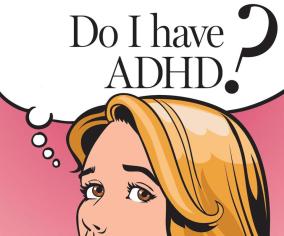 Because I make my living as a writer, people might be surprised to know that I have a hard time reading. While the act of writing feels as natural to me as breathing, moving my eyes from word to word on a page sometimes feels akin to pulling a heavy cart uphill.
Because I make my living as a writer, people might be surprised to know that I have a hard time reading. While the act of writing feels as natural to me as breathing, moving my eyes from word to word on a page sometimes feels akin to pulling a heavy cart uphill.
When I was twenty-five, I asked my eye doctor why, when I read, the white spaces between the words on a page sometimes pop out at me, and why, when I reach the end of a sentence, I often have trouble finding my way to the beginning of the next sentence. I also read slowly and—as demonstrated by my SAT and GRE scores—I suffered from poor reading comprehension.
He said I have a reading disability. “You mean, like dyslexia?” I asked. He shook his head and said there was no real term for my imperfect brain-to-eye connection, but if I wanted to focus better I should 1) move a black sheet of construction paper down the page, sentence by sentence; or 2) trace along the sentences with my finger or a pencil eraser.

I used those strategies to propel me through graduate school—a piece of black paper was always sticking out from the scholarly texts I lugged around Brown University’s campus. I also was quick to join study sessions, where I would glean from conversation all that I’d missed from my readings.
To be sure, my reading skills have improved over the years. If I’m into good book, I can jam through it without losing my place or seeing the white spaces. When I read online, I enlarge the font and allow the cursor to take the place of my finger.
But I still lose my concentration, and often end up skimming. I read first sentences and subtitles, and can usually come away with just enough relevant information to fake my way through dinner party conversations. If I know an article holds some import to my life—like if it’s about raising a teenage girl, or how to make the best French onion soup—I’ll send it to my husband and ask him to let me know what the takeaway is.
I recently mentioned this personal annoyance to my therapist, Jessica. She arched her eyebrows with a disturbingly knowing look.
“I think you have ADHD,” she said. “Not a reading disability.”
“ADHD?”
“Yup. You have all the classic signs. You’ve probably had it your whole life.”
I went home and Googled ADHD, skimming through all the verbiage and statistics. Then I took the test. If I agreed with at least 15 of the statements, it was likely that I had attention deficit disorder:
- I have difficulty getting organized.
- When given a task, I usually procrastinate rather than doing it right away.
- I work on a lot of projects, but can’t seem to complete most of them.
- I tend to make decisions and act on them impulsively – like spending money, getting sexually involved with someone, diving into new activities, and changing plans.
- I get bored easily.
- No matter how much I do or how hard I try, I just can’t seem to reach my goals.
- I often get distracted when people are talking; I just tune out or drift off.
- I get so wrapped up in some things I do that I can hardly stop to take a break or switch to doing something else.

- I tend to overdo things even when they’re not good for me – like compulsive shopping, drinking too much, overworking, and overeating.
- I get frustrated easily and I get impatient when things are going too slowly.
- My self-esteem is not as high as that of others I know.
- I need a lot of stimulation from things like action movies and video games, new purchases, being among lively friends, driving fast or engaging in extreme sports.
- I tend to say or do things without thinking, and sometimes that gets me into trouble.
- I’d rather do things my own way than follow the rules and procedures of others.
- I often find myself tapping a pencil, swinging my leg, or doing something else to work off nervous energy.
- I can feel suddenly depressed when I’m separated from people, projects or things that I like to be involved with.
- I see myself differently than others see me, and when someone gets angry with me for doing something that upset them I’m often very surprised.
- Even though I worry a lot about dangerous things that are unlikely to happen to me, I tend to be careless and accident prone.
- Even though I have a lot of fears, people would describe me as a risk taker.
- I make a lot of careless mistakes.
- I have blood relatives who suffer from ADHD, bipolar disorder, or substance abuse.
I agreed with seventeen.
I was not alone. According to ADDITUDE, an online zine devoted to all things ADHD, 4.4 percent of the adult US population has ADHD. That’s a lot of distracted insecure risk-taking pencil-tapping humans, if you ask me.
So, it turns out my optometrist had been mistaken. I didn’t have a reading disability. I just couldn’t always concentrate long enough or hard enough to allow the words from the page to travel to my parietal lobe in an orderly fashion. It’s like, sometimes, when I’m in the middle of reading, my brain suddenly holds up a YIELD TO ONCOMING THOUGHTS sign, or a photo of a cute bunny, and I have to start over again.
YIELD TO ONCOMING THOUGHTS sign, or a photo of a cute bunny, and I have to start over again.
I am getting better, though, day by day. I am learning to tame my monkey mind through meditation, mindfulness, exercise, and radical acceptance. (I tried drugs but they made me quiver and quake and sent my blood pressure into dangerously high digits.) And Jessica has been offering me tactics to help keep me more focused on my objectives (see: #1, #2, #3, #6).
But I’m not even close to there yet. Case in point: yesterday I was having kind of a lousy day. I had a lot to accomplish and felt angry at myself for not being more productive (see #10 and #11), so I did what I’ve been programmed to do most of my life: I ignored Jessica’s advice and went looking for a distraction. I cleaned the cat box. Played a round of Toy Blast. Unwound a paper clip and wrapped it around my finger. Made another list of things to do. Checked Facebook. Looked at pictures of food on my food porn site. Read email.
I saw that I’d gotten a beautiful post from Jena Schwartz, a poet and writing coach whose blog I follow (or, really, whose blog I skim). In her “Practices for a Busy Mind and Being Here Now,” she talked about going for a quiet morning walk out in nature. She kept getting distracted—by her thoughts, her phone, tasks that needed taking care of, her children and wife, her job. After telling herself she had to BE HERE NOW, she walked for a while longer, then sat on a rock and meditated. By the time she got home she felt rushed because she didn’t think she had enough time to write her newsletter, and how crazy it was that she felt that way. She realized it was more important that she MAKE ROOM for the words, rather than anxiously try to squeeze them through a muddled mind.
All you have to do is begin.
Just as the water always flows downstream,
the rest happens by itself.
Jena’s tale—I read the whole thing; every last word—resonated with me so much so that I decided I wanted to write a blog post about Jena’s blog post, but it wasn’t on my list of THINGS TO DO TODAY, which made me castigate myself for not following my new rules and staying on track, which distracted me into fixating on my ADHD, which distracted me enough to write a blog post about that, instead.
So here it is, and now I can check WRITE BLOG POST off my To-Do list and feel gratified that I completed a task—a great accomplishment for someone who gets lost on a page as easily as a blind man does in a circus tent.
I will get by. I will get better. With practice and patience, I, too, will figure out how to make room for my words. Words to read. Words to write. Words to live by.
Lisa Kusel is the author of the novel Hat Trick (Hyperion, 2003), and Other Fish in the Sea, a collection of linked stories (Hyperion, 2005). Rash, a memoir about her family’s Bali  nightmare is scheduled to be released in September, 2017 (WiDo Publishing). Lisa’s poems and essays have appeared in Zuzu’s Petals, The Mondegreen, The Manifest-Station, and Parent Co. Magazine, as well as in the tea-stained journal on my nightstand. When she is not parenting or meditating or running or cooking, Lisa can be found writing at her desk overlooking Lake Champlain in Burlington, Vermont.
nightmare is scheduled to be released in September, 2017 (WiDo Publishing). Lisa’s poems and essays have appeared in Zuzu’s Petals, The Mondegreen, The Manifest-Station, and Parent Co. Magazine, as well as in the tea-stained journal on my nightstand. When she is not parenting or meditating or running or cooking, Lisa can be found writing at her desk overlooking Lake Champlain in Burlington, Vermont.
(This post originally appeared on Lisa’s website. We are reprinting it here in its entirety with her permission.)
